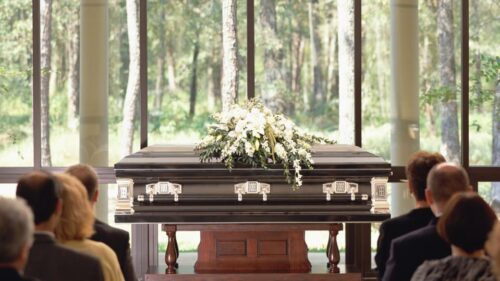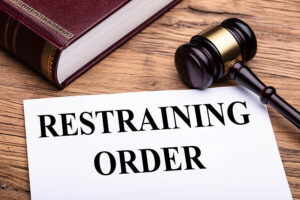Funeral planning is something that many individuals have to deal with at some point in their lives, yet it is not something that is publicly discussed. There is a lot that goes into this process, from knowing how to choose a funeral home to know how long it takes to plan the event. In this tutorial, we lift the lid on the funeral industry to discuss the timetable. How long does it take to plan a funeral from beginning to end, and what other elements should you consider?
How Long Does It Take to Plan a Funeral?
Funerals in the United States are often held within a week or two following death. That’s not a lot of time for your family to make significant, expensive decisions, especially if they’re feeling down.
If you haven’t preplanned your funeral, your family will most certainly spend hours at a funeral home with a funeral director.
Factors That Influence How Long It Will Take to Plan a Funeral
When it comes to funeral planning, the following details must be determined:
#1. Scheduling
The actual funeral cannot be scheduled in advance. It will be determined by a number of considerations, including the funeral home’s and minister’s availability, long-distance loved ones and their travel plans, the weather and season, and other preplanned events, such as a wedding, scheduled surgery, or delivery.
#2. Locating a Minister
Who will officiate at your funeral? You probably have a clergyman or trusted person in your life who comes to mind right away. Make sure your family is aware of your wishes.
#3. Christian Funeral Customs
Christian funerals are often held within one week of death. Usually, there is viewing the night before, where people can come and go as they choose. This is also known as a wake. The deceased’s body or a memorial to the departed is shown so that everyone can pay their respects.
#4. Catholic Funeral Customs
People who strictly adhere to the Roman Catholic faith hold their funeral three days following death. Traditionally, a wake is held two days before the funeral, where loved ones congregate to pray for both the deceased and one another.
#5. Ceremony of Remembrance
Some people wish their final tribute to feel more like a celebration when loved ones are encouraged to remember the happy times rather than dwell on the loss. While similar to a traditional funeral, a celebration of life is more likely to include uplifting music, nice food, and be a fun representation of the person being celebrated.
#6. A Ceremony of Scattering
If you desire to be cremated, you can tell your loved ones where you want your ashes scattered. You may choose a beautiful site with sentimental importance, or you could bury the ashes in a cemetery plot or urn garden. A scattering ceremony is often smaller than a traditional funeral, with fewer guests in attendance, and it can be as formal or informal as you wish.
#7. Embalming
Embalming can keep a body preserved for about a week longer and may be required if the wake or viewing must be postponed.
#8. Funeral Eulogies, Songs, and Other Elements
In many respects, your funeral is your final opportunity to make an impression on the world. Do you have any suggestions for what you want it to be? Who do you want to speak to, and what do you want to wear? There are numerous elements that go into a funeral, and you should be able to influence them.
Timeline for Typical Funeral Planning
To begin, consider the normal funeral planning timeline. It’s crucial to realize that this is not a one-size-fits-all solution. There are numerous things that might either delay or expedite this service.
For example, if your loved one scheduled their service ahead of time, this will take much less time. Knowing exactly what your loved one wants for their memorial service or funeral ensures the family has fewer questions and decisions to make.
Most funerals are scheduled within 1-3 weeks. It is critical to hold the funeral as soon as possible in order to expedite the grieving process. While some delays are unavoidable, it is nevertheless preferable to have the funeral ceremony as soon as possible. In general, the funeral timeline looks something like this.
#1. Gather paperwork (1-3 days)
The initial step is frequently the most difficult. This is because the family is usually at its most emotionally vulnerable right after a loved one dies.
It’s critical to gather relevant papers at this early stage. This includes the death certificate, details about life insurance, military service, marriage certificates, and retirement savings. In most circumstances, gaining access to these files, papers, and accounts takes time and effort.
The organization and security of this data are critical to the rest of the procedure. Families usually start gathering papers as soon as a loved one dies, but it might take several days.
#2. Consult with the family (1-5 days)
After you’ve located and gathered all of the necessary papers, it’s time to ask questions about the service. It is advisable to appoint a single individual or a couple to oversee the funeral service. Having too many voices participating slows down the process and may lead to conflict.
This is still in the planning stages. Now is the time for the family to start asking questions like:
- How will the deceased be interred (cremation or burial)?
- How will religion and culture be incorporated into the service?
- Who will be responsible for organizing the service and reception?
- Who is going to be invited?
While no final answers are required right away, it is critical to begin addressing these fundamental questions early in the arrangement process.
#3. Select a funeral home (1-2 days)
Another significant step is selecting a funeral home. It’s critical to choose a funeral home and funeral director you can rely on. This individual and organization will be in charge of planning and, in certain cases, leading the service, therefore they must be skilled and trustworthy.
Call around your neighborhood and go online to find a funeral home. It is acceptable to inquire about the fee up front, and these service providers are obligated to be open and transparent.
#4. Determine the location and service details (3-7 days)
Now for the service’s specifics. Your funeral home will assist you in planning the service. You will make the following decisions:
- Where will the service take place?
- Will the casket or body be available for viewing?
- Who will be in charge of the service?
- What kinds of prayers, hymns, and readings will be included?
- How long will the service be available?
- Is there going to be a reception?
As you can see, there is a lot to learn about how to plan a funeral for a loved one. Fortunately, the funeral director will guide you through the entire process. It’s never a bad idea to seek their advice.
#5. Final preparations (1-2 days)
Last but not least, finalize any service arrangements. This includes inviting speakers to participate in the service, making decorations, and preparing signage, among other things.
Again, the funeral director can help with many of these chores. Having extra hands on deck guarantees that the process moves fast. Nonetheless, many family members may find the organizing and planning to be exhausting.
How Long Does Cremation Last?
A body is usually burned within a few days of death. The cremation authorization would need to be signed by the next of kin. A coroner must also approve it in some circumstances, such as those involving an active police investigation.
Reasons to Postpone a Funeral
Funerals are rarely delayed, but families may have unique reasons for doing so. The most common cause of a funeral delay is having loved ones traveling from out of state or country. Delays are more likely to be caused by situations outside the family’s control. Deaths occurring outside of the state or country, criminal investigations, blizzards, pandemics, or power outages may delay funeral ceremonies. Cremation may be a viable alternative in circumstances of long delays.
What Is the Average Funeral Cost?
The death industry is big business these days. The National Funeral Directors Association reports that the median cost of an adult funeral, including viewing and burial, is $7,848. In Tennessee, the figure is slightly lower: $7,271. A casket alone can cost between $2,000 and $10,000.
Ways to Save Money on Funeral Planning
Preplanning your funeral will go a long way toward helping your family save money and avoid making emotional decisions.
You don’t have to buy your own coffin in advance, but you might look around, make a plan, save your preferred possibilities, and write down suggestions for how you want your arrangements handled. Consider it a guideline for your loved ones to use when making decisions they can be confident in.
#1. Purchase Your Casket Online.
If you decide to purchase your coffin or urn ahead of time, you can discover less-priced options online at stores like Costco.
#2. Cremation.
The typical cost of a cremation funeral is $6,971—nearly $900 less than the same funeral with a burial.
#3. Avoid Using Embalming.
The average price of embalming is $775. However, there are two reasons why you might not require it:
- If the funeral home has refrigeration and can hold the funeral within a few days following the death, or
- If you do not want to show the body to the public after death.
Embalming is done frequently; nevertheless, it is not a mandatory expense.
#4. Establish a Prepaid Funeral Plan.
A prepaid funeral plan is a contract that you can enter into with a funeral home to preplan your funeral. They’ll give you the full cost of your plan, with the option of paying it in full or in installments over a period of years. Doing this ahead of time benefits you in two ways: it protects against inflation and guarantees that your loved ones do not have to come up with the money when the time comes.
Tips for Accelerating the Funeral Planning Process
If you and your family value speed, you may be wondering how to expedite the planning process. A few essential pointers can make or break your project.
#1. Less is More
When it comes to delegating authority, less is sometimes more. While a funeral is an emotional occasion and many people may have strong feelings, keep in mind that more viewpoints foster conflict.
Putting one person in control is the greatest method to assure fewer barriers along the path. Remember that it is impossible to please everyone. Consider what the deceased loved one would have preferred in general.
#2. Understand your financial situation.
The more you know about your budget and what you’re ready to spend, the better prepared your funeral director will be to provide options.
Make it clear what’s important to you and how much you’re willing to spend. To minimize unnecessary distractions and slowdowns, only focus on what is inside this budget.
#3. Hold a smaller, more immediate funeral.
If you need to arrange a funeral fast, consider having a smaller, more private funeral immediately after the death. If you want to do something more extravagant, you can always do it later.
This allows you and your loved ones to say their final goodbyes shortly after the loss while yet allowing time for a larger event later on. There is no limit to the number of funerals you can hold for individuals you love.
#4. Hold difficult discussions.
Last but not least, having difficult conversations about death is the best approach to expedite the funeral planning process. The best way to know what measures to take when the time comes is to talk to your loved ones about what they want when they die.
While it is difficult to break down these boundaries, these discussions alleviate the strain on loved ones who must make these decisions on their own.
When Is the Best Time to Plan a Funeral?
Nobody wants to contemplate their own demise. That’s why so many individuals don’t plan their own funerals, instead of leaving the preparations to their friends and loved ones. In these instances, the scheduling of the deceased’s funeral is ultimately up to you and any affected parties, taking into account the deceased’s budget and religious or spiritual views. If you have to wait for a beloved sibling to arrive on time, so be it. It’s fine if you need to rush or delay to avoid a forthcoming holiday or other events. It is mostly up to you how fast or how long you have to plan a funeral.
At the same time, it’s never too early to start making final preparations. Whether you’re considering funeral planning for yourself or a loved one, having even a rudimentary plan in place years or even decades in advance will save plenty of time and energy later for those in charge of preparing the funeral.



